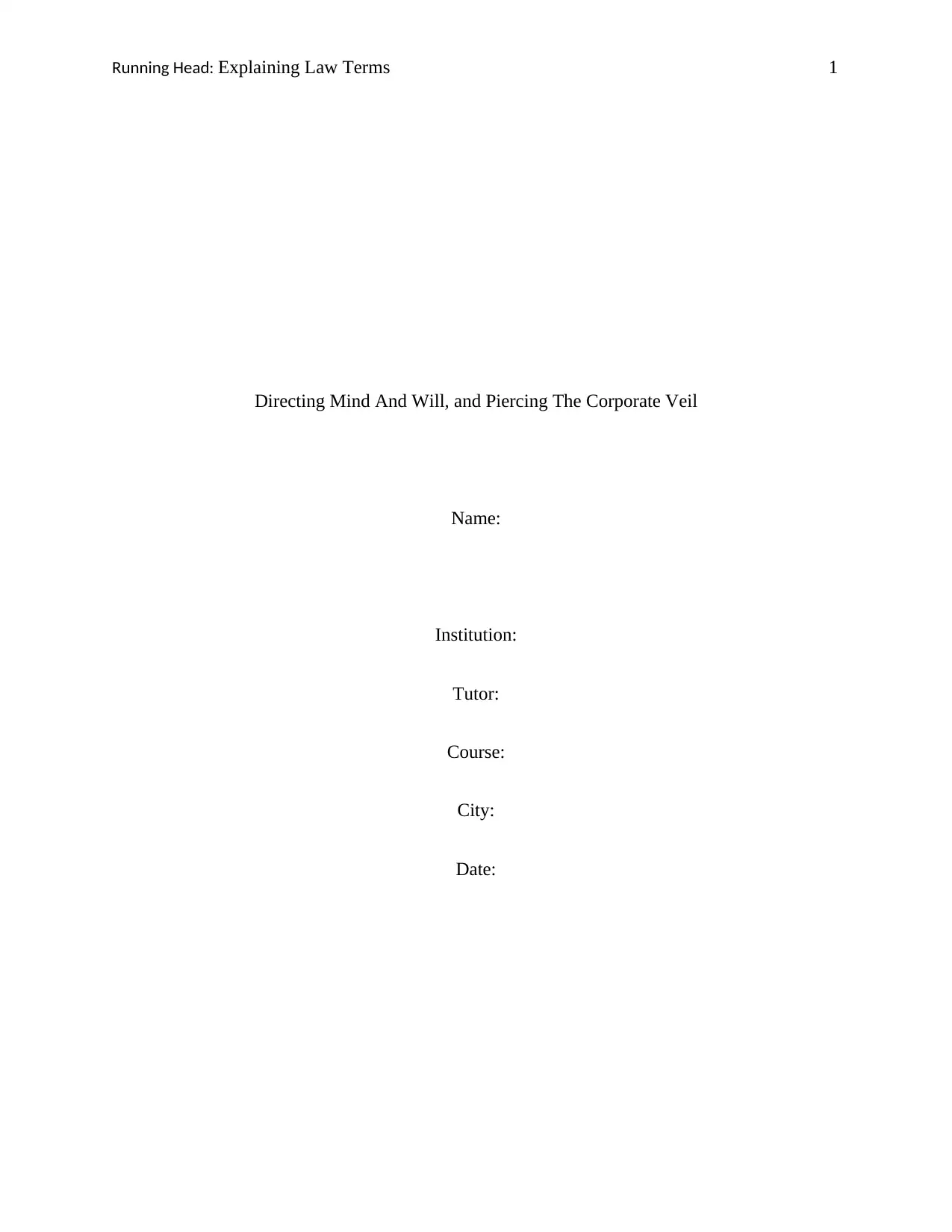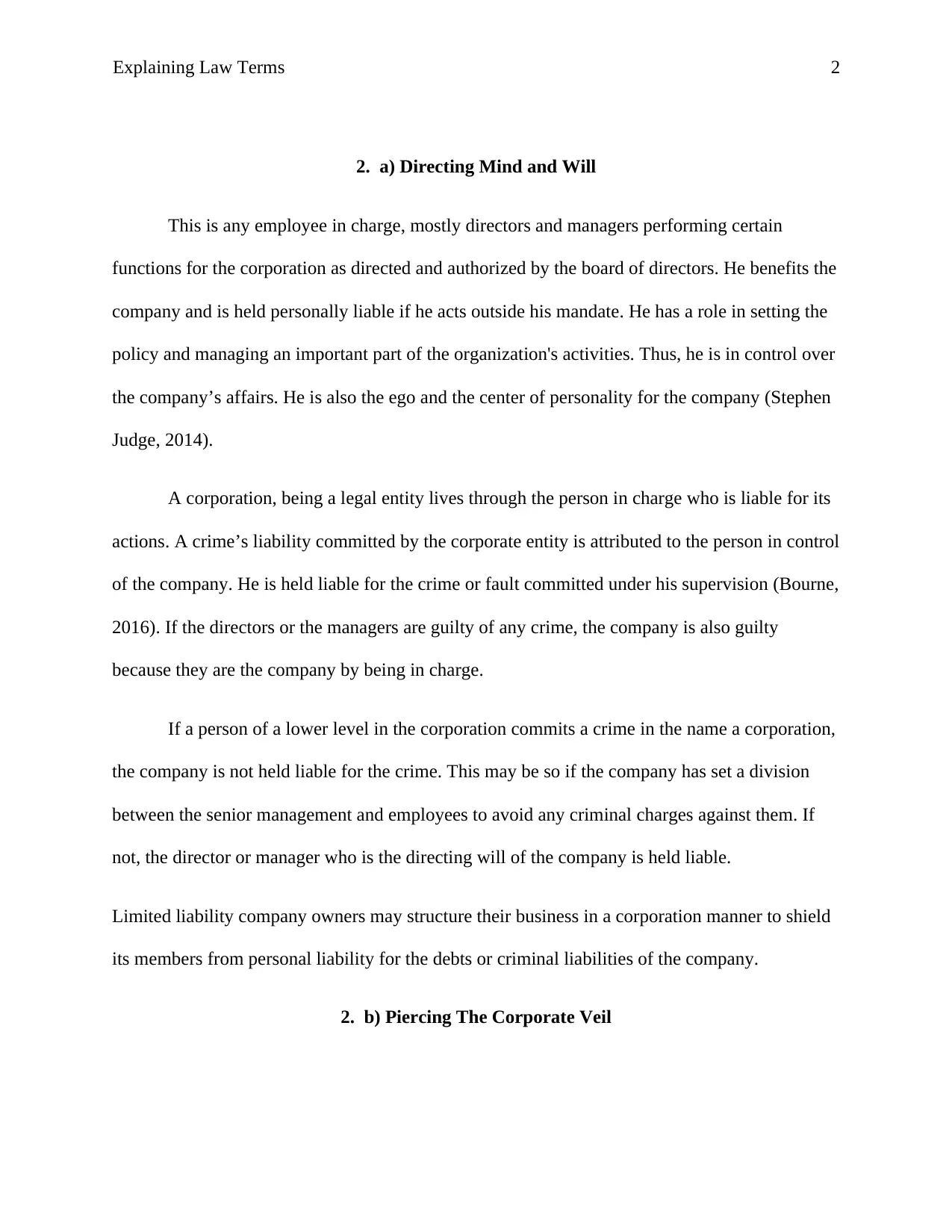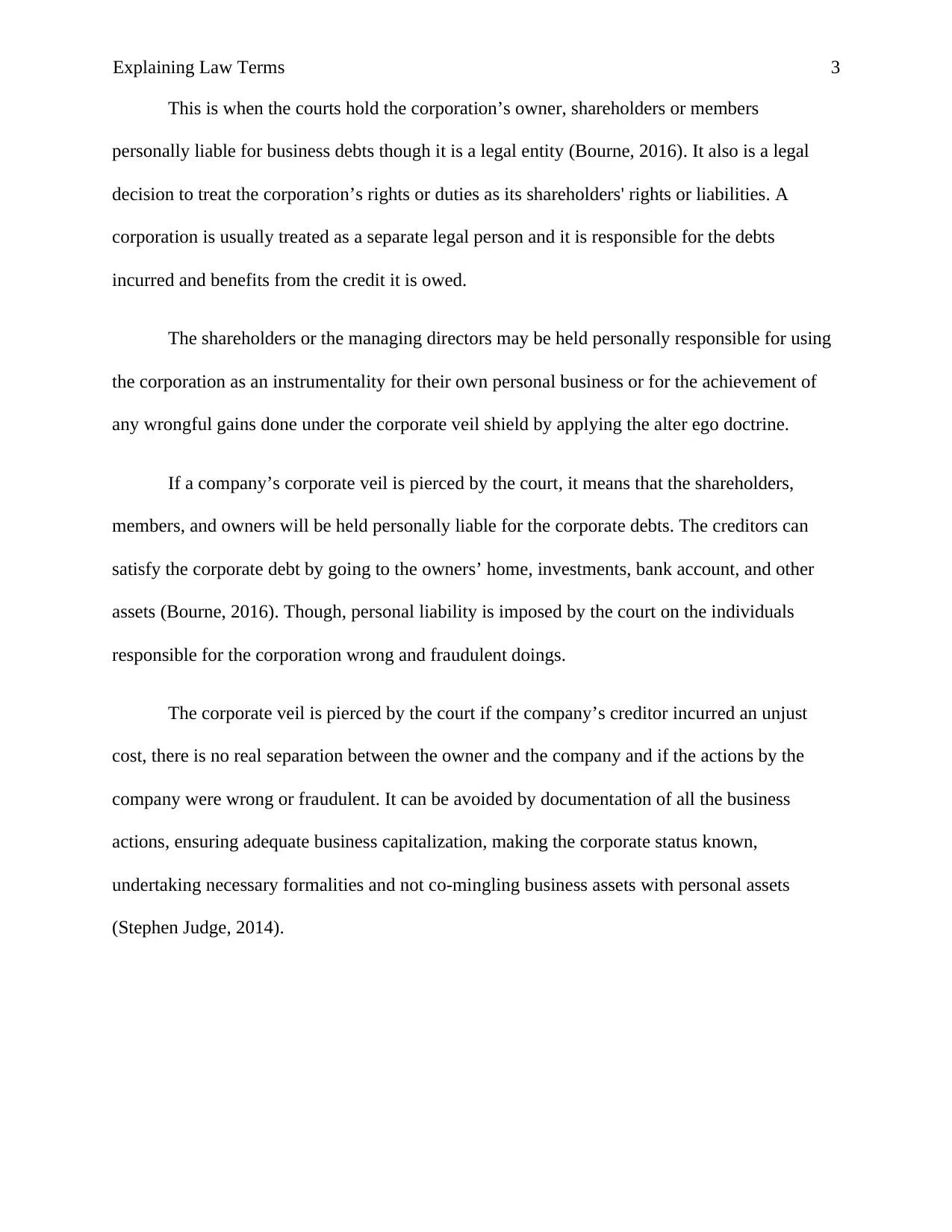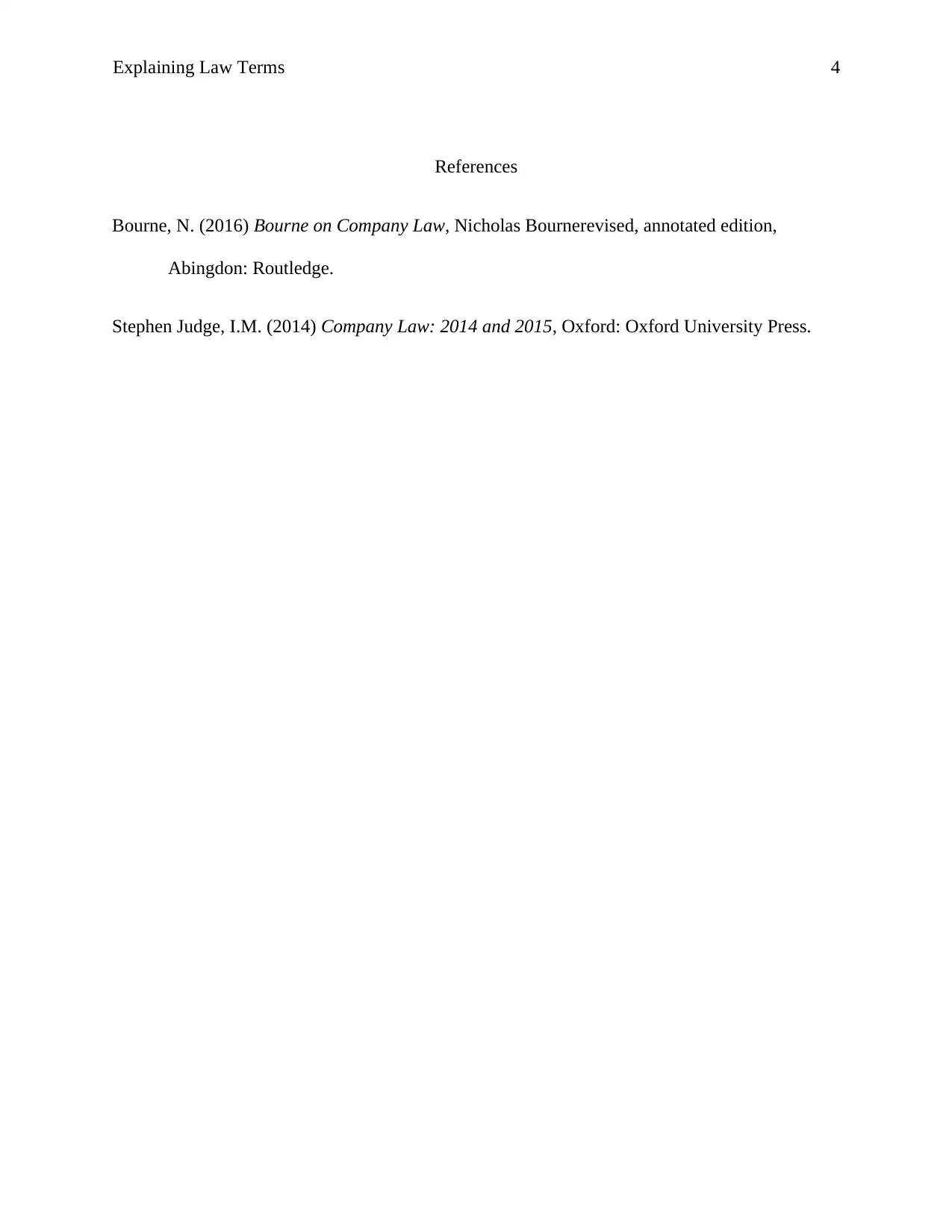Understanding Legal Terms: Directing Mind and Corporate Veil Explained
VerifiedAdded on 2020/03/23
|4
|666
|39
Report
AI Summary
This report provides an in-depth analysis of two key legal concepts: 'Directing Mind' and 'Piercing the Corporate Veil'. It begins by defining 'Directing Mind' as the individuals within a corporation, such as directors and managers, who are responsible for setting policies and managing the company's affairs. It explains their liability for actions taken under their supervision. The report then explains 'Piercing the Corporate Veil', detailing how courts may hold shareholders or members personally liable for business debts. It outlines the conditions under which the corporate veil may be pierced, such as when the corporation is used for personal gain or wrongful actions. The report emphasizes the importance of proper business practices to avoid personal liability, including documentation, capitalization, and separation of assets. References to legal texts are also provided.
1 out of 4











![[object Object]](/_next/static/media/star-bottom.7253800d.svg)